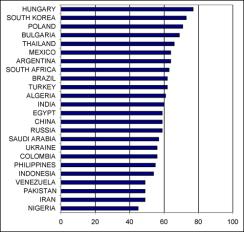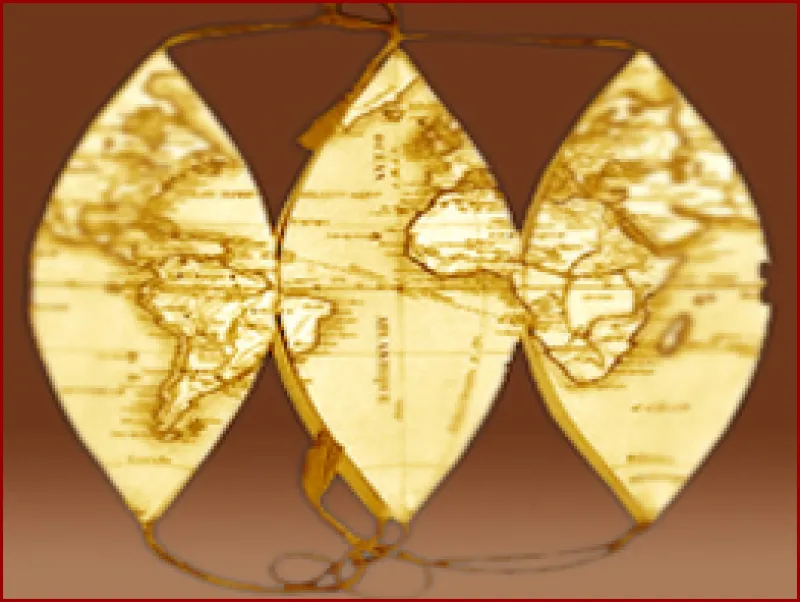The Deutsche Bank Eurasia Group Stability Index was released on Friday featuring updated monthly ratings on political stability in 24 emerging markets nations. Two countries worth highlighting include Mexico and South Africa, where large-scale strikes in both countries contributed to declines in their June stability scores. In Mexico, strikes hurt the society, economy and government variables, lowering Mexico’s overall score by two points to 64. Two labor disputes threatened to boil over into national politics in the final days of a hotly contested presidential campaign. Mine workers, backed by Mexico’s opposition labor movement, threatened a general strike for June 28 unless the labor minister resigns. Meanwhile, teachers in the southern state of Oaxaca planned to shift their weeks-old protest to the capital. The strikes also had an impact on the Mexican economy because production disruptions curtailed copper exports from the country’s two largest mines.
Mexico’ political atmosphere in the lead-up to the July 2 presidential elections is now more polarized than it has been in a decade. The pro-market candidate, Felipe Calderon, appeared to have closed the gap with Andres Manuel Lopez Obrador, the left-leaning candidate who held a strong lead in the polls until the spring. However, a surprisingly strong recovery by Lopez Obrador, coupled with corruption allegations involving Calderon’s family, has left the race in a dead heat. In an attempt to seal victory, both campaigns have gone on the attack. Turbulence in international financial markets and slowing U.S. growth also posed challenges for Mexico’s economic stability.
South Africa’s stability index score took a three-point slide to 63, as the ongoing strike by South Africa’s transport workers and 14 other unions turned violent, affecting the society and government variable groups. The violent labor action triggered vastly different responses from the top African National Congress leaders, reflecting the growing ideological schism within the ruling party. President Thabo Mbeki condemned the violence, while Jacob Zuma, who was recently reinstated as the party’s deputy president, supported the unions.
The reemergence of Jacob Zuma on the South African political scene has caused headaches for President Mbeki. Since his May 2006 acquittal on rape charges, Zuma has regalvanized the ANC’s long-marginalized left and now looks set to become the frontrunner both for the ANC presidency in 2007 and as a potential successor to Mbeki in 2009. In addition to the domestic issues such as the strikes and ANC tensions, South Africa’s stability is also being threatened by the spillover effects of soaring inflation and political instability in neighboring Zimbabwe. In May, inflation there exceeded 1,000% as infighting plagued the country’s ruling party and the central bank lost control over the money supply. Potential massive refugee flows from Zimbabwe threaten social and economic stability in South Africa.
* * *
About the DESIX
The Deutsche Bank Eurasia Group Stability Index is the first comparative political and economic index designed specifically to measure stability in emerging markets. Constructed by Eurasia Group on the basis of leading social science theories, the index incorporates twenty composite indicators of risk, including both quantitative and qualitative criteria of stability—defined as the capacity of countries to withstand shocks and crises and to avoid generating shocks and crises. The DESIX ranks countries according to their capacity to withstand shocks and crises and to avoid generating crisis. Ratings are expressed on a scale of 0-100, with higher numbers corresponding to higher country stability. The composite stability ratings are broken into categories: Maximum Stability (80-100), High Stability (60-80), Moderate Stability (40-60), Low Stability (20-40) and Failed State Stability (0-20).
| 
| ||||||||||||||||||||||||||||||||||||||||||||||||||





